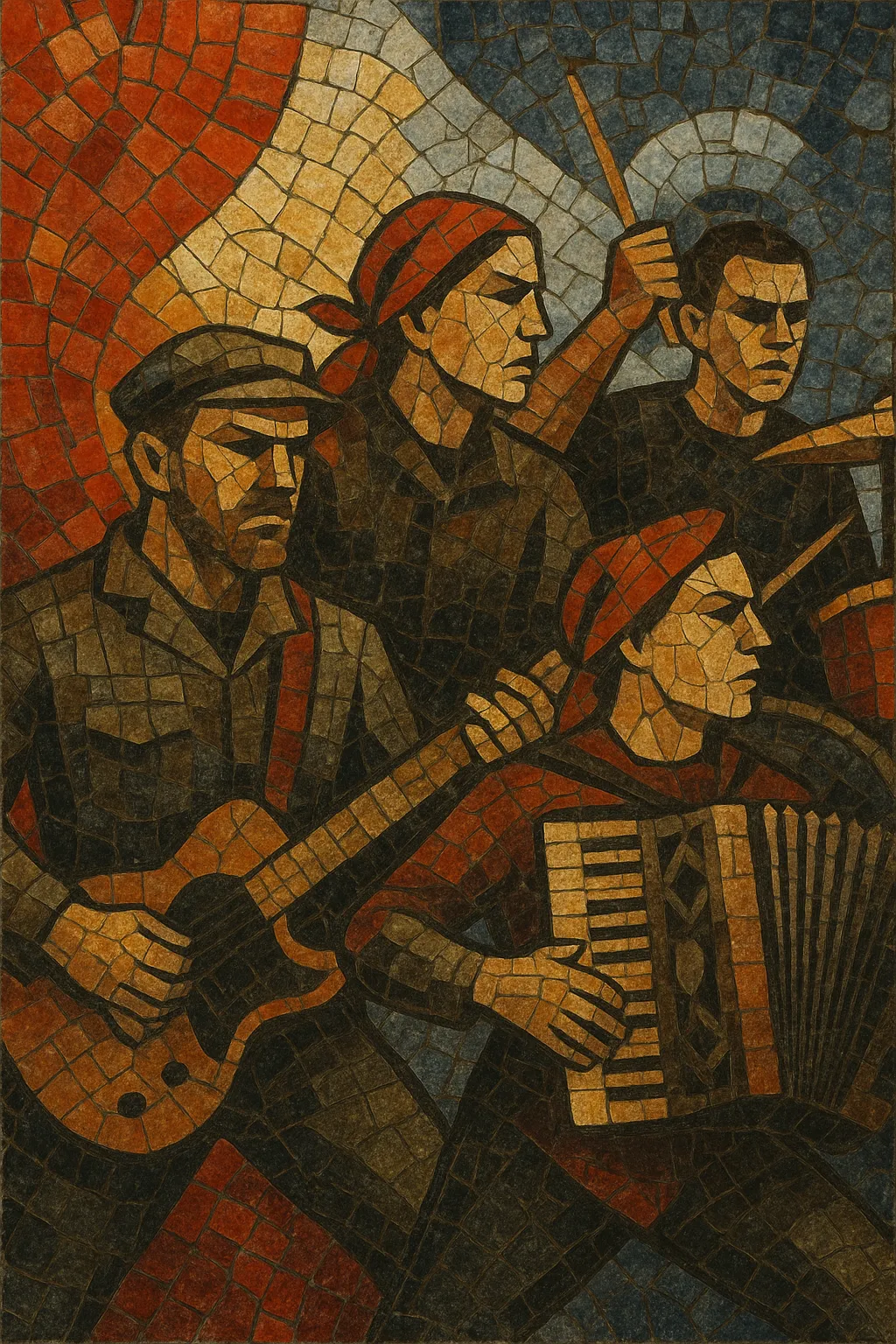New Partisans is a Belarusian protest-rock movement that reactivates the country’s partisan imagery and folk memory in a contemporary, guitar-driven idiom. Bands combine alternative and punk rock energy with elements of Belarusian folk melody, language, and storytelling to articulate dissent, national identity, and social critique.
The style is marked by anthemic choruses, chantable slogans, and a DIY, underground presentation that developed in response to censorship and venue restrictions. While electric guitar, bass, and drums form the core, occasional folk timbres (such as dudy/bagpipe, cimbalom, or acoustic strings) signal continuity with older partisan and folk-song traditions.
Lyrically, New Partisans balances historical references with present-tense civic themes, often sung in Belarusian, and seeks solidarity across audiences at home and in the diaspora.
After the collapse of the USSR, a new Belarusian rock underground coalesced around language revival and civic themes. Musicians drew on local folk song and bard traditions while adopting the sound, attitude, and infrastructure of alternative and punk rock. Early gatherings and cross-border festivals (notably in neighboring Poland) offered platforms for artists who preferred to perform in Belarusian and address social realities.
As public space tightened in Belarus, the scene’s ethos crystalized: the wartime figure of the partisan—deeply embedded in Belarusian collective memory—became a metaphor for cultural resistance. Bands fused urgent, riff-centered rock with chant-like, communal refrains, and lyrics that referenced history, identity, and everyday pressures. Anthems circulated via radio bans, bootlegs, and the internet, while diaspora concerts kept momentum.
Restrictions, blacklists, and venue pressure pushed many artists to tour abroad, where they continued releasing material and supporting grassroots initiatives. The movement’s sound and repertoire re-emerged prominently during waves of civic mobilization in the late 2010s and 2020, with crowds adopting familiar protest choruses and new songs shaped by the same partisan symbolism. Despite changing line-ups and new projects, the aesthetic—combining folk inflections, Belarusian-language lyrics, and insurgent rock energy—remains a touchstone for Belarusian protest music.
New Partisans helped normalize Belarusian-language rock on major stages abroad, trained a generation in DIY organizing, and established a repertoire of modern civic songs that audiences can readily adopt in public spaces. Its blend of folk resonance and contemporary rock has become a template for subsequent protest-oriented acts.


